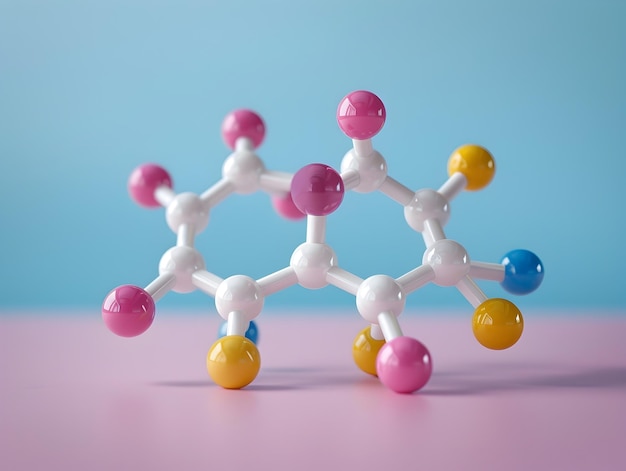
Hormones can drive you crazy or leave you crying. They can make you feel irrational and, as we age, mess with our weight loss goals. This is especially true for women with estrogen and cortisol levels.
Do hormones cause weight gain? How can we address it? Does estrogen impact weight loss?
I’m not an expert on this, so I consulted professionals for help. First, let’s briefly discuss the symptoms of estrogen or cortisol imbalances. Christine Khuri, a certified integrative nutrition and fitness coach, provided a quick rundown of the symptoms. However, rather than focusing on the symptoms, we’ll concentrate on resolving these issues.
For more details on how cortisol affects the body, I’ll save that for another time. Let’s look at how estrogen and cortisol can influence our metabolism and weight loss and explore natural ways to balance these hormones. We posed these questions to experts:
– Certain foods and habits can increase cortisol levels, leading to waistline weight gain.
– Instead of reaching for high-sugar snacks, try a fruit smoothie with fresh fruit, protein powder, and ground flaxseed. This combination offers fiber, protein, and omega-3 fatty acids.
– Alcohol can interfere with fat burning, so switch to a glass of sparkling water with lemon.
– For battling cravings and low energy, incorporate fermented foods like yogurt, sauerkraut, or tempeh into your diet. These foods help the body detoxify and balance estrogen levels.
– Replace refined carbohydrates with fresh fruits, vegetables, and whole grains to support weight loss and overall health.
Jennifer Cohen Katz RD LDN, a Culinary Nutritionist at Fresh Balance Nutrition, provided this advice.
There are many natural ways to tackle hormone imbalances, even for middle-aged or older adults. As a functional nutritionist, I use lab tests to check hormone levels, cortisol rhythm, liver and gastrointestinal function, thyroid activity, and genetic factors.
The most crucial step is naturally balancing your hormones. What we eat impacts our whole system. Our bodies create stress and steroid hormones from B vitamins and fats. A poor diet causing inflammation raises cortisol levels, disrupting balance.
If the liver is not functioning well, toxins build up, leading to hormone imbalances. The liver is vital for clearing hormone byproducts. Hormonal imbalances can occur when liver or gallbladder function is impaired.
Rest, yoga, and meditation can reduce stress and balance hormones. For some, heavy resistance training or burst training can boost anabolic hormones like testosterone.
Studies support these strategies. Natural supplements like adaptogenic herbs—ashwagandha, astragalus, Rhodiola, and ginseng—also help balance hormones. These herbs can adjust body pathways, promoting balance and protection. Licorice root extends the half-life of cortisol, while maca stimulates hormone production and enhances fertility by supporting the hypothalamus and pituitary glands.
Ultimately, a combination of diet, rest, exercise, stress reduction, and supplements can help balance hormones.
Author Michael Spitzer of “Fitness at 40, 50, 60 and Beyond” shared insights on how hormonal changes impact women approaching menopause. Women between ages 43-55 may experience symptoms like irritability, impatience, or depression, which are linked to fluctuating estrogen and progesterone levels.
During this time, women might find themselves reacting unusually to minor stress. Hormonal changes also make women more susceptible to osteoporosis due to declining estrogen levels.
Estrogen loss also affects cholesterol levels, often increasing unhealthy LDL while decreasing healthy HDL, which can raise the risk of heart attacks. Other symptoms include decreased fertility, menstrual irregularity, bladder issues, changes in sexual function, hot flashes, and sleep disturbances.
Certain supplements have gained popularity for relieving premenopausal symptoms. DIM, found in many health food supplements, acts as an “estrogen balancer,” potentially reducing symptoms like weight gain, mood swings, and breast pain. Natural phytoestrogens and progesterone found in specialized lotions can help maintain hormone balance and combat estrogen dominance.
Opinions on the effectiveness of these supplements vary. Personal experience often guides individuals on whether these remedies work for them.
Having over 35 years of experience, I can say the combination of a lean protein/complex carb diet, weight resistance training, and regular cardio activity yields successful weight loss and improved mobility, flexibility, and vitality. Consistency is key, as relying on miracle supplements or pills is unrealistic.
For those struggling with hormone-related weight issues, consult a doctor for a comprehensive hormonal profile to tailor a suitable diet plan.
In essence, controlling your diet, stress, sleep, and exercise is crucial to achieving your health goals. With dedication and patience, you will see results. Stay tuned for Part II, where we’ll address testosterone imbalances!